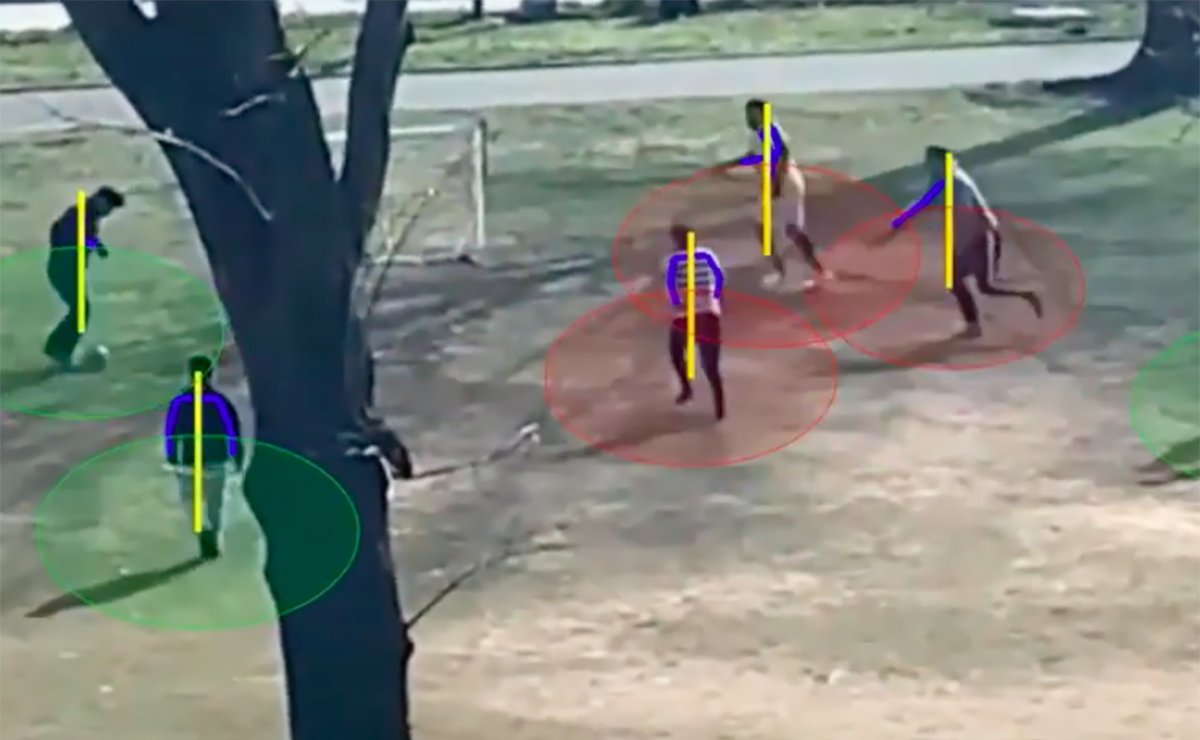| Connecticut town testing drones to help battle COVID-19 |

A Connecticut police department is betting it can help flatten the curve of COVID-19 by taking to the air.
In partnership with Canadian drone manufacturer Draganfly, the Westport, Conn., police are testing the use of aerial technology and biometrics to “monitor social distancing, ease the spread of COVID-19 and keep their communities and personnel safe.”
Draganfly says its “pandemic drones” can detect infectious diseases from 190 feet away. The drones are outfitted with sensor and computer vision systems that can detect fever and heart and respiratory rates, “as well as detect people sneezing and coughing in crowds, and wherever groups of people may work or congregate.” Deep-learning algorithms also can detect hypertension and rapid heartbeats; the drones are not using facial recognition.
The system integrates technologies from Draganfly, the University of South Australia and a health care data-services company.
Westport police say they plan to use the technology to protect at-risk groups such as senior citizens and monitor crowds in public spaces.
— Leslie J. Allen and Alexa St. John
What you need to know
GM spikes Maven General Motors is shutting down Maven, its first prominent foray into the mobility space, as a result of the coronavirus pandemic. Maven notified customers Tuesday; the business will wind down gradually by market, spokeswoman Katie Downey said. All operations will likely be shut down by late summer. Maven’s assets and resources will be transferred to GM’s Global Innovation organization, as well as the larger enterprise, the statement said. Maven launched in 2016 in Ann Arbor, Mich., as a short-term vehicle rental service before expanding with Maven Gig, which provides short-term leases for vehicles used in ride-hailing or delivery services. Maven Gig will also be shut down.
Consumer confidence in future vehicle technologies waning In addition to the financial challenges that electric vehicles and other advanced vehicle technologies face, consumers remain wary of these advancements. Consumer sentiment about self-driving cars and EVs lags automaker plans to bring these technologies to market, J.D. Power’s 2020 Q1 Mobility Confidence Index Study shows.
Roundup
VW will resume ID3 production and has reaffirmed a summer European launch date for the EV.
Uber gets green light to chase government contracts.
Pony.ai to offer autonomous delivery service in California.
COVID-19 crisis will ding automotive R&D, including Level 3 and above autonomous-driving technologies, a survey shows.
Daimler and Volvo Trucks have teamed up in a fuel cell venture.
COVID-19 precautions have forced Lordstown Motors to push back the reveal of its Endurance electric pickup.
Meanwhile, Chinese electric vehicle company Byton is furloughing approximately half the 450 workers at its North American headquarters, the company said in a statement to Electrek.
And fledgling electric vehicle company Faraday Future has obtained a loan of more than $9 million from the Small Business Administration’s Paycheck Protection Program.
Mazda has hinted that the rotary engine will return in a hybrid version of the MX-30, an EV that debuted last year.
Most driving safety technology packages reduce insurance claims by significant percentages, according to a study released this week.
Brain food
How Care by Volvo has changed the automaker’s idea of car ownership.
Last mile
The mystery of Elon Musk and the missing ventilators.